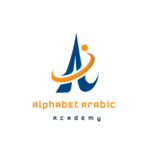how can i get Arabic and Quran Teacher?
Are you a non-Arabic speaking student eager to learn the Holy Quran and master the Arabic language? At Alphabet Arabic Academy, we specialize in connecting you with the best Arabic and Quran teachers to help you achieve your learning goals. Our platform is dedicated to offering affordable, high-quality education for children, adults, and learners of all levels. contact us

Preply Quran Teacher
While Preply offers a variety of teachers, Alphabet Arabic Academy provides a more personalized experience. Our highly qualified teachers tailor their lessons to your needs, ensuring you excel in Quranic studies, tajweed, and Arabic fluency. Start learning with us today and explore the difference.
Quran Teacher App
Learning the Quran has never been easier with our interactive and user-friendly tools. Our Quran teacher app is designed to make memorization, tajweed, and Quranic Arabic lessons accessible wherever you are. Join us for an engaging and convenient learning experience.
Female Online Quran Teacher
We understand the importance of having female teachers for children and women. Alphabet Arabic Academy connects you with experienced and certified female Quran teachers who create a comfortable and professional learning environment for all students.
Quran Instructor Online from Egypt
Renowned for their expertise and fluency in classical Arabic and Quranic studies, our Egyptian Quran teachers bring authentic Al-Azhar teaching methods directly to your home. Study from the finest and strengthen your bond with the Quran.

Quran Teacher Offering Arabic Lessons Nearby
Forget geographical barriers—our platform ensures that you can find the perfect “Arabic, Quran teacher near me” online. With live classes and personalized lessons, you can learn from native speakers and expert tutors no matter where you are.
Online Quran Tutor
Our online Quran tutors are committed to helping students achieve their goals in Quranic reading, memorization, and interpretation. From beginners to advanced learners, our tutors guide you through every step of your journey.
Arabic Tutor
Master the Arabic language with the help of a skilled Arabic tutor. Our classes encompass every facet of the language, such as grammar, vocabulary, and conversational skills, helping non-Arabic speakers to thrive.
Online Quran Teachers
At Alphabet Arabic Academy, our diverse team of online Quran teachers specializes in various disciplines, including tajweed, hifz, and Islamic studies. Learn at your pace with teachers who are committed to your success.
Quranic Arabic Course
Our Quranic Arabic course is designed to help you understand the depth and meaning of the Holy Quran. Gain proficiency in Arabic grammar and vocabulary while exploring the beauty of the Quranic text.
Quran Lessons
Our Quran lessons are structured to accommodate learners of all levels. Start with foundational iqra lessons and progress to mastering tajweed, memorization, and Quranic interpretation with ease.
Al Azhar Quran Teaching
Experience the excellence of Al Azhar Quran teaching through our highly qualified Egyptian tutors. Learn from educators with deep knowledge of the Quran and Islamic faith to enhance your understanding and practice.
Way to Learn
Learning Arabic and the Quran is made simple with our expert-designed programs. Our step-by-step curriculum ensures you build a strong foundation and advance with confidence, making the journey enjoyable and rewarding.
Native Arabic Teachers
Our native Arabic teachers bring unparalleled expertise to your learning experience. Their deep understanding of the language and culture ensures you gain a well-rounded education that goes beyond just the basics.
Online Quran Classes
Join our online Quran classes for a flexible and interactive learning experience. Whether you prefer private one-on-one sessions or group classes, we offer affordable options to suit every need and schedule.
Arabic Courses
Our Arabic courses cater to non-Arabic speakers who want to learn everything from the alphabet to advanced speaking and writing skills. With engaging lessons and expert tutors, you can master the language step by step.
Learn Through Our Website
At Alphabet Arabic Academy, we make high-quality Arabic and Quran education accessible to everyone. Visit our website, Alphabet Arabic Academy, to explore our affordable courses and expert tutors. Follow us on social media for news, advice, and special deals.
Frequently Asked Questions (FAQs)
Q: What ages do your Arabic and Quran courses cater to? A: Our courses are designed for all ages, including children, teenagers, and adults. We offer tailored programs to meet the needs of every age group.
Q: Are your teachers qualified? A: Yes, all our teachers are highly qualified and certified, with extensive experience in teaching Arabic and Quranic studies.
Q: Do you provide lessons for beginners? A: Absolutely! We have beginner-friendly lessons that focus on building a strong foundation in Arabic and Quran reading.
Q: Which teaching methods do you utilise? A: Our teaching methods include interactive lessons, tajweed rules, memorization techniques, and engaging activities to make learning easier and more effective.
Q: Can I choose between male and female teachers? A: Yes, you can choose between male and female teachers based on your preference. Both are experienced and committed to providing high-quality education.
Q: Are live classes available from you? A: Yes, we provide live online classes to ensure an interactive and personalized learning experience.
Q: What levels of Arabic do you teach? A: We teach all levels, from beginner to advanced, including Fusha and Quranic Arabic.
Q: Are your courses based on Al-Azhar curriculum? A: Many of our courses are inspired by Al-Azhar’s deep-rooted curriculum, ensuring quality and authenticity in Islamic education.
Q: How should one start learning effectively? A: It’s easy! Visit our website, Alphabet Arabic Academy, and enroll in a course that suits your needs.
Start your journey with Alphabet Arabic Academy today and discover the perfect Arabic and Quran teacher to guide you every step of the way!
also read
https://alphabetarabicacademy.com/learn-arabic-online-course/ https://alphabetarabicacademy.com/boost-skills-learn-arabic-online-in-weeks-now/ https://alphabetarabicacademy.com/learn-arabic-online-classes-start-now/


